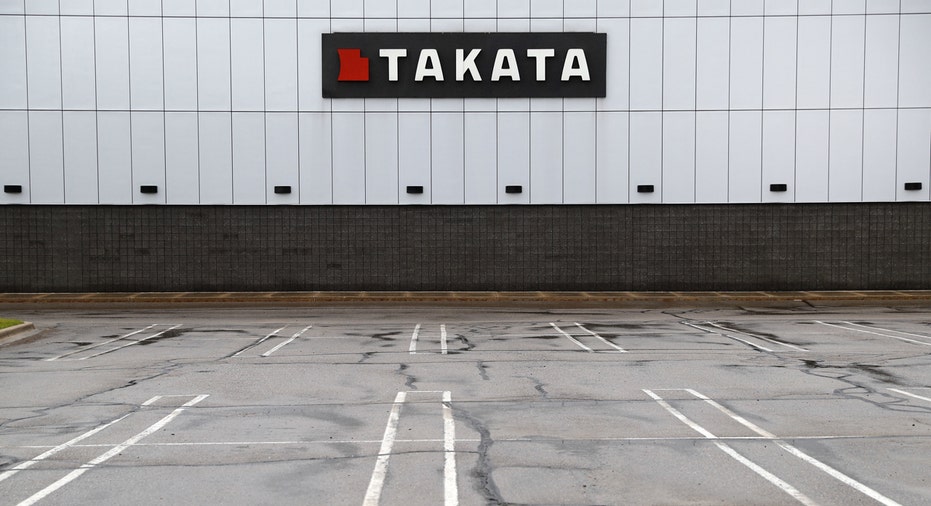Judge approves initial motions in Takata bankruptcy

DOVER, Del. (AP) — A Delaware bankruptcy judge on Tuesday granted several preliminary orders allowing Japanese auto parts supplier Takata to move forward with its reorganization plan, which includes the sale of most of its assets to a Chinese-owned rival for $1.6 billion.
Takata was forced into bankruptcy this week amid lawsuits, multimillion-dollar fines and crushing costs related to the recall and replacement of tens of millions of lethally defective air bag inflators.
At a first-day hearing, Judge Brendan Shannon granted various motions allowing Takata to continue paying its bills and working with suppliers and customers.
Shannon's rulings include approval of a key agreement between Takata and major automobile manufacturers, who are both the company's largest customers and largest creditor group, that Takata hopes will provide sufficient near-term liquidity as it moves through the bankruptcy and sale process.
In providing liquidity to Takata, the automakers have agreed to forego certain rights, including exercising setoffs against their existing accounts payable to Takata. Takata, in exchange, has agreed to continue to manufacture and supply parts and replacement kits during the bankruptcy and to offer the carmakers certain protections, including replacement liens and super-priority claims.
An attorney representing the U.S. Virgin Islands, which has sued Takata and Honda over the faulty airbags, expressed concern Tuesday that the bankruptcy case seems to have been set primarily for the benefit of the automakers, adding that it's not clear whether their purported setoff rights have been properly established. He also objected to Takata's request for confirmation of an automatic stay, a routine bankruptcy provision that halts litigation or enforcement of judgments against a debtor during its bankruptcy.
Shannon overruled the objection, suggesting that the automatic stay is aimed primarily at private parties and foreign entities, and that the interests of the Virgin Islands would be sufficiently protected.
"It is meaningfully different when a United States government entity seeks to move forward," the judge said.
Takata has acknowledged that a chemical used in the air bag inflators, ammonium nitrate, can degrade over time, especially in hot, humid climates. The defect can cause the inflators to rupture, spewing deadly shrapnel inside a vehicle. The problem has been blamed for scores of injuries and at least 16 deaths.
"Takata deeply regrets that this has occurred and regrets the harm that has been done to injured parties and the pain suffered by families who have lost loved ones," Marcia Goldstein, an attorney representing Takata, said Tuesday.
The next hearing in the bankruptcy case is scheduled for July 26.
In the meantime, the U.S. bankruptcy trustee has scheduled a creditor committee formation meeting for July 6.



















